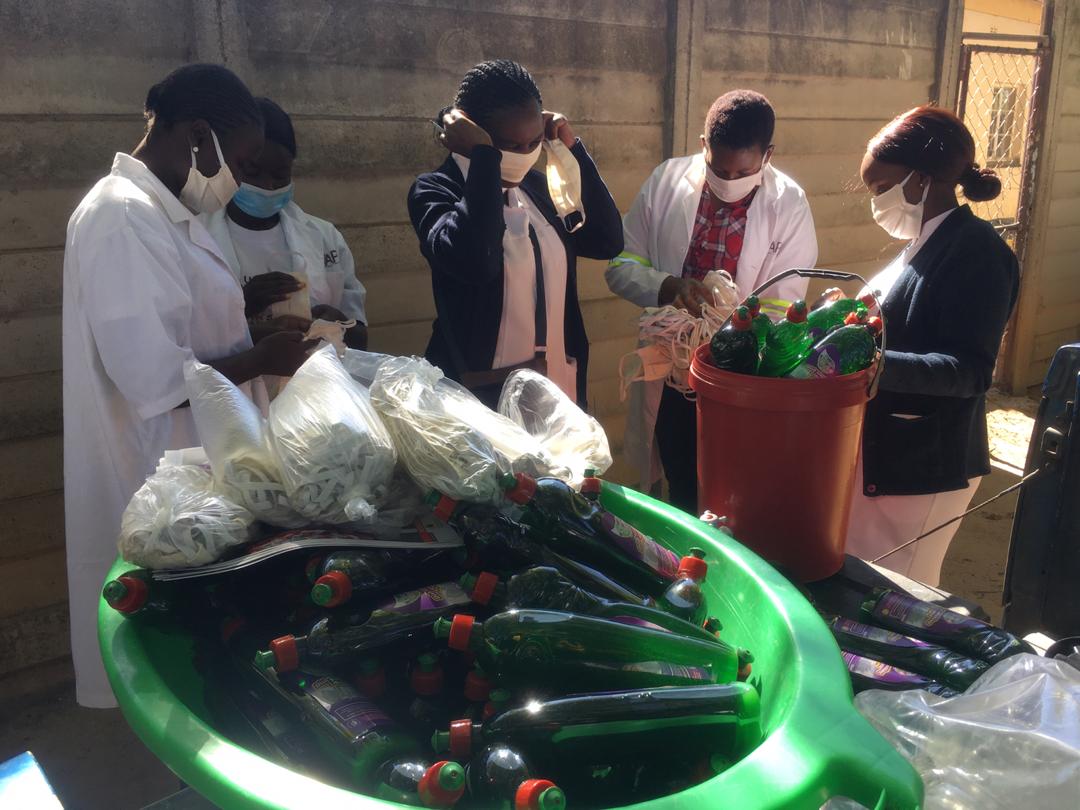
Mission
The mission of Women Advocacy Project (WAP) is to abolish child marriage, promote the rights of women and girls, and work towards women’s economic empowerment. WAP uses advocacy to promote and protect the rights of vulnerable and marginalized women and girls.
Life Challenges of the Women Served
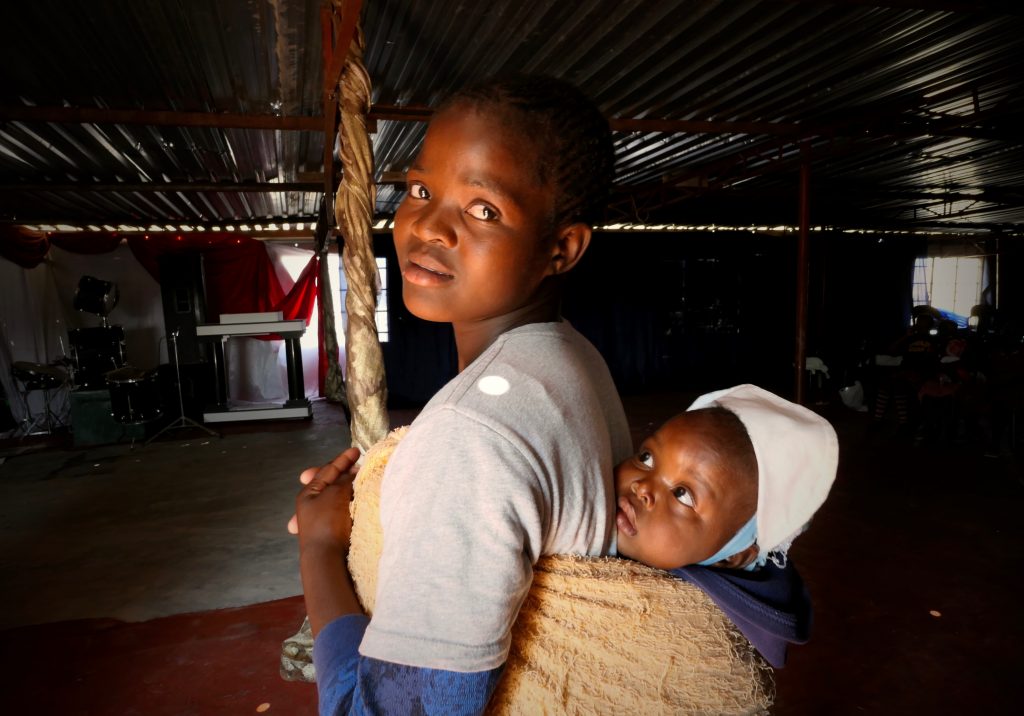 For many years, Zimbabwe was considered the breadbasket and had some of the best health and education statistics in Sub-Saharan Africa. But due to climate change and economic mismanagement, it is now dependent on humanitarian aid. Political and economic crises in recent years have also exacerbated poverty and brought with it a host of economic and social problems. The unemployment rate is above 90 percent and those who have jobs are mostly underemployed. The weak economy and political instability mean few opportunities to earn a secure income. As a result, 72 percent of the country’s population lives in chronic poverty.
For many years, Zimbabwe was considered the breadbasket and had some of the best health and education statistics in Sub-Saharan Africa. But due to climate change and economic mismanagement, it is now dependent on humanitarian aid. Political and economic crises in recent years have also exacerbated poverty and brought with it a host of economic and social problems. The unemployment rate is above 90 percent and those who have jobs are mostly underemployed. The weak economy and political instability mean few opportunities to earn a secure income. As a result, 72 percent of the country’s population lives in chronic poverty.
Women and girls have been the hardest hit by this crisis. They account for 52 percent of the population and live on less than $1.90 per day. Many families are unable to pay for school fees, sanitary pads, or other hygienic material. Many girls turn to prostitution. Poverty is a major driver of child marriage. The financial pressure forces families to take their daughters out of school and marry them off to wealthier men. One third of all girls in Zimbabwe marry before the age of 18. Approximately 500,000 teenagers become pregnant every year, and 19 percent of the pregnancies are the result of child marriages. Forty-eight percent of adolescent pregnancies are unplanned. Adolescent pregnancy contributes to maternal and child mortality and the vicious circle of poor health in Zimbabwean communities.
Child marriage brings an abrupt and unnatural end to a girl’s childhood and adolescence by imposing adult roles and responsibilities before she is physically, psychologically, and emotionally prepared. Marriage imposes social isolation on girls, bringing unwanted separation from their friends and family. Once married, girls are most likely to feel powerless to refuse sex. Child brides find it difficult to insist on condom use by husbands who are usually older and more sexually experienced. This makes the girls vulnerable to HIV and other STIs. Child marriage can also result in bonded labor or enslavement. Child brides are also under intense pressure to become pregnant immediately after marriage, creating a major risk for both mother and the baby.
The Project
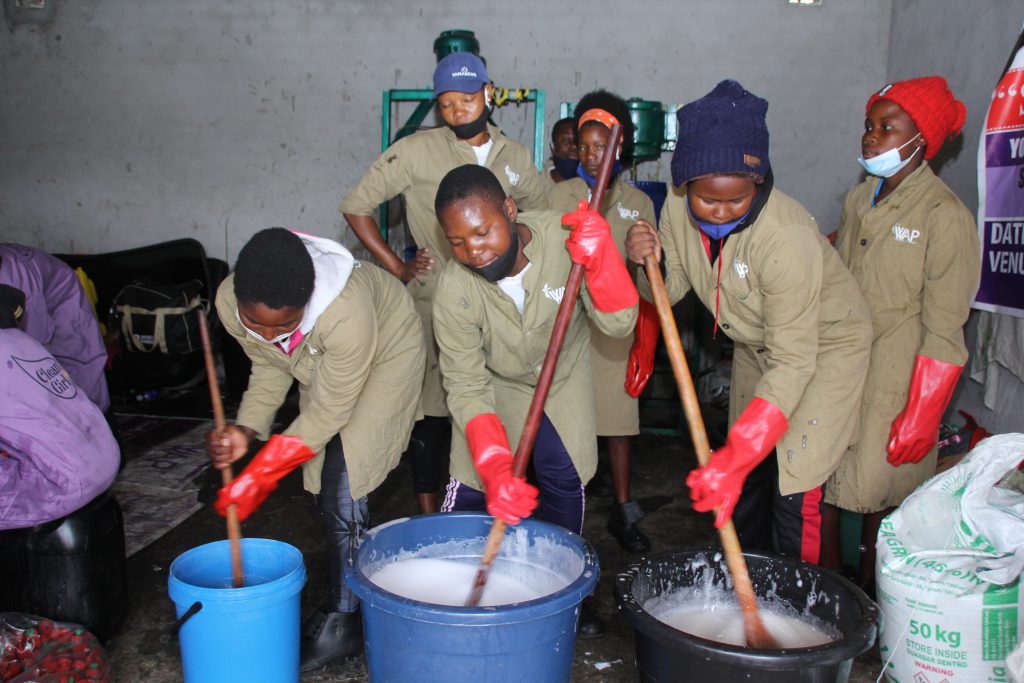 WAP aims to empower girls and mothers in four communities to earn an income by producing and selling all-purpose (“Clean Girl”) soap. There is a big market for soap in poor communities, particularly since the COVID pandemic calls for much handwashing. WAP helps prevent early marriage, ease economic pressure on families for necessities such as education and food, and alleviate poverty through income generation. This two-year project will take place in the communities of Mbare and Waterfalls, Harare. Family income is expected to increase by 50 percent for those participating in the project, and child marriages are expected to fall as parents come to understand the value of their daughter’s work. In addition, hygiene will improve and some families will be able to afford to send their daughters back to school.
WAP aims to empower girls and mothers in four communities to earn an income by producing and selling all-purpose (“Clean Girl”) soap. There is a big market for soap in poor communities, particularly since the COVID pandemic calls for much handwashing. WAP helps prevent early marriage, ease economic pressure on families for necessities such as education and food, and alleviate poverty through income generation. This two-year project will take place in the communities of Mbare and Waterfalls, Harare. Family income is expected to increase by 50 percent for those participating in the project, and child marriages are expected to fall as parents come to understand the value of their daughter’s work. In addition, hygiene will improve and some families will be able to afford to send their daughters back to school.
This project, Using Soap to Empower Girls in Zimbabwe, will unfold using the following steps, methods, and objectives.
- – Trainees and ambassadors selected: Soap-making projects will be established in Mbare and Waterfalls, where 40 participants and 2 coordinators (ambassadors) will be chosen. This will take place in the first two months of the project. The two ambassadors will be selected by and through WAP’s “Give us Books, Not Husbands” in Chitungwiza, Epworth, Mbare, and Waterfalls, to ensure that the two soap teams are run by strong girl leaders.
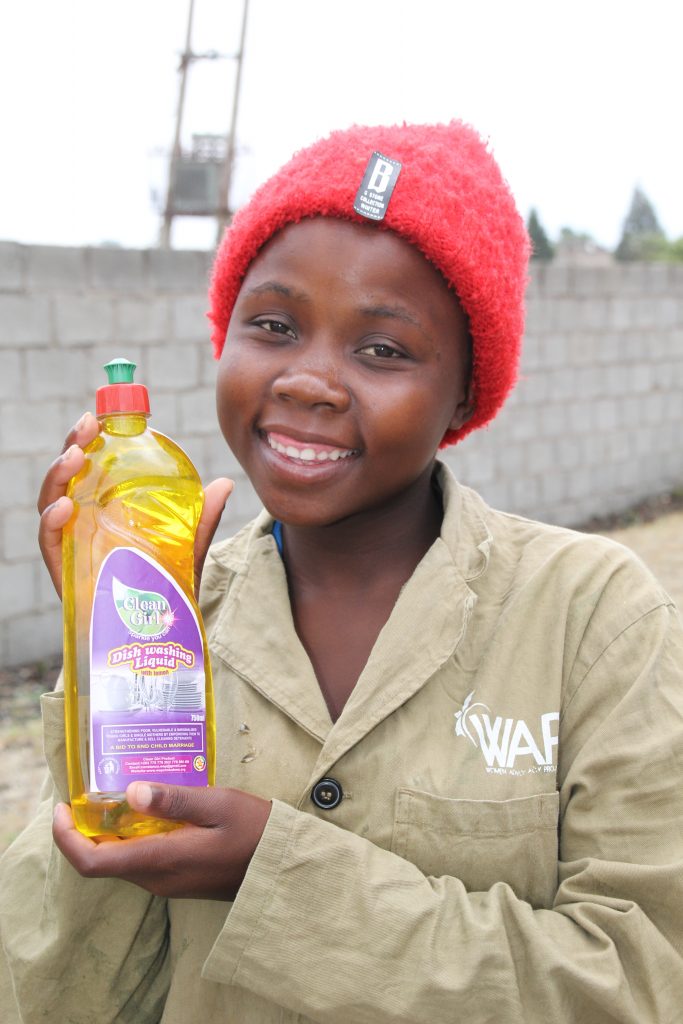
- – Baseline survey: The 40 selected girls plus other families will be surveyed to determine their household data and understand their attitudes on child marriage.
- – Training: The 40 girls will receive two months of training in basic chemistry and soap production. This ensures their soap is high quality and competitive in the local market.
- – Production of soap: Trainees will sign an agreement with WAP and receive safety equipment (gloves, boots, and coats). They will work together, under the supervision of an ambassador, once a week to produce the liquid soap. They will meet again later in the week to bottle the soap and attach labels. The girls will produce a total of 8,000 bottles of quality soap, which will be certified by the government in the second and third months of the project.
- – Marketing and selling soap: Each girl will receive a quota of bottles to sell in neighborhood stores. The girls will sell the soap themselves in their communities, and ambassadors may sell more bottles in bulk. The goal is for the girls to sell 4,000 bottles of soap in each of the two years. This translates to revenue of $4,000 per year per club, or $8,000 total. The remainder will be invested in the program. In addition, each girl will earn a salary of $12.50 per month. Marketing and selling soap will produce several important outcomes, including increased confidence and team spirit.
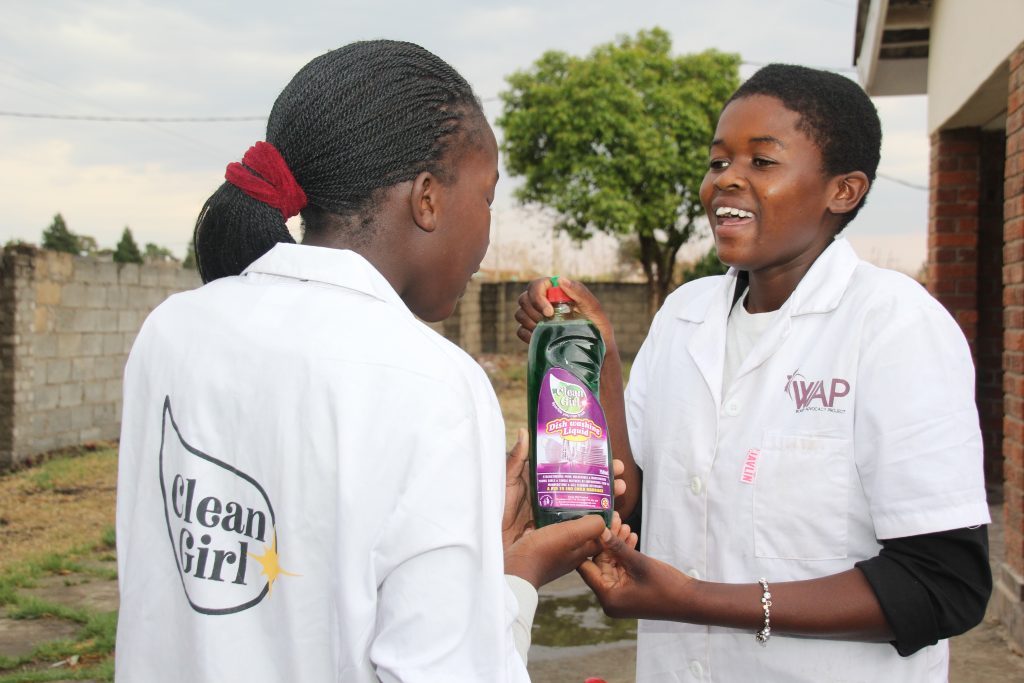 – Money management: All girls will sign a chit, which is like an IOU, when they receive bottles. They will submit a receipt to their ambassador after they return from market and tuck shops. All money transactions will be managed efficiently and transparently. WAP will maintain accounts and file receipts for reports to donors. All funds will be kept safe by WAP’s deputy director until they can be deposited in the bank account.
– Money management: All girls will sign a chit, which is like an IOU, when they receive bottles. They will submit a receipt to their ambassador after they return from market and tuck shops. All money transactions will be managed efficiently and transparently. WAP will maintain accounts and file receipts for reports to donors. All funds will be kept safe by WAP’s deputy director until they can be deposited in the bank account.- – Education and outreach: WAP will organize one meeting per week where the ambassadors review progress with their group and identify those who seem threatened by child marriage. In addition to learning how to make soap, the girls will learn about child marriage and the reasons to reject it. They will also identify families that seem threatened by child marriage. The goal is for child marriage to be eliminated among the selected families and reduced in the two communities.
- – Registration of the Clean Girl business: WAP will apply for registration to enable Clean Girl soap to be sold at supermarkets in bulk using a bar code.
- – Monitoring: WAP will monitor the project monthly and quarterly through its clubs and soap trainings and will produce interim reports and a final report that will return to the initial survey to show whether attitudes towards child marriage changed and if so, why.
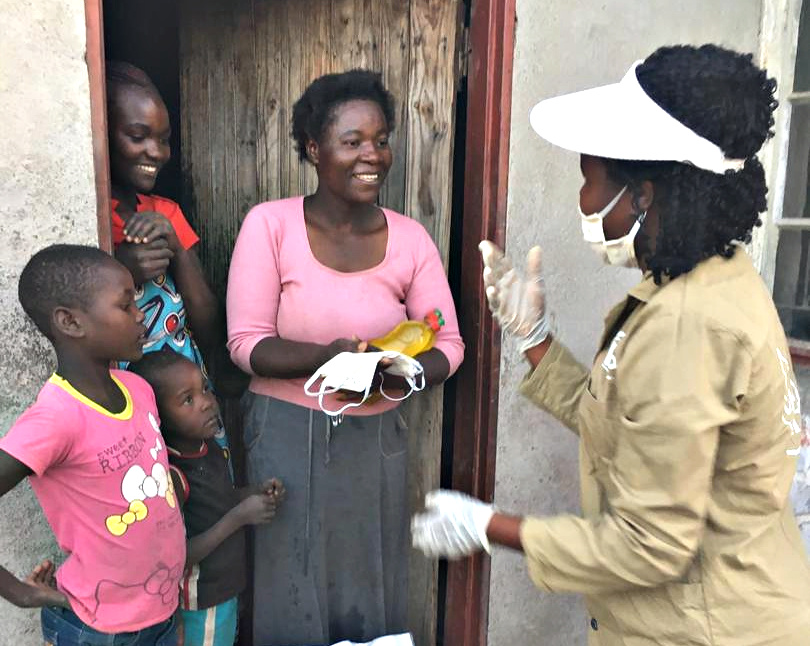 In the pilot of this project, the most important outcome by far is that none of the girl who have attended WAP’s clubs or participated in soap training have married. WAP’s experience shows that girls who participate in their program become more productive, efficient and experienced as they do more training. They also acquire confidence and new skills through selling, including marketing, and leadership.
In the pilot of this project, the most important outcome by far is that none of the girl who have attended WAP’s clubs or participated in soap training have married. WAP’s experience shows that girls who participate in their program become more productive, efficient and experienced as they do more training. They also acquire confidence and new skills through selling, including marketing, and leadership.
WAP will select the girls from its four “Give us Books, Not Husbands” Girls Clubs in Chitungwiza, Epworth, Mbare and Waterfalls. Those interested will be selected, with priority given to underprivileged young women and single mothers who have been abandoned or divorced by their husbands, young girls between 12 and 18 who are at risk of marriage, and girls in families headed by older female siblings and are suffering from difficulties.
As an organization, WAP subscribes to the idea of Participatory Planning and Development because it is the beneficiaries who know the issues best and are therefore better able to offer informed input. This project will be led from the start by girl ambassadors. WAP’s role will be to guide the ambassadors. The girls will determine how their soap is marketed, as they currently do. WAP will work with The Advocacy Project (WAP’s fiscal sponsor organization based in Washington DC). AP will send two Peace Fellows – one in 2021 and one in 2022 – to help WAP with technical support in monitoring, evaluation and reporting. WAP will also cooperate with Action for World Solidarity (ASW–Germany), which has funded the soap project in Chitungwiza, and Rockflower Fund (USA) which has also funded WAP’s program. AWS, AP and Rockflower have agreed to contribute significant funding.
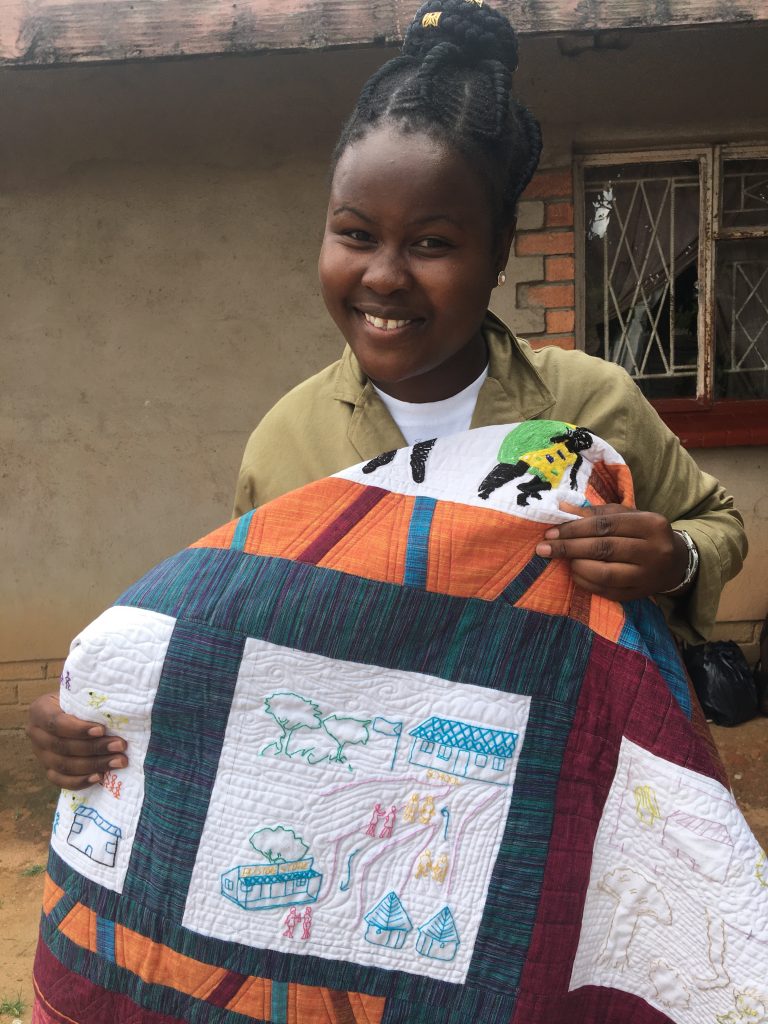 WAP collaborates with Child Line Zimbabwe; EGOBOOST Pvt-Ltd and government institutions including the Ministry of Women Affairs, Community, Small and Medium Enterprises Development. WAP has also received training from the Zimbabwe Quilt Guild in Harare. Internationally, WAP is an active member of the Girls Not Brides network and a close partner with The Advocacy Project (AP) in Washington DC. Every year AP sends a graduate student (Peace Fellow) from America to Zimbabwe to help train WAP staff and assist in project design, monitoring and evaluation. WAP girls have for a while told their stories about Early Marriage through quilting squares. In response to COVID, WAP girls have been creating facemasks and reaching out to vulnerable families in their neighborhoods. They have also been creating quilting squares telling the story of COVID in their communities. This has now grown into an international initiative. They are joined in this project by the Girl Up chapter at Wakefield High School in Arlington, VA and three artists from the Bardiya district of Nepal. WAP is seeking quilting groups in the US to assemble these squares. More details are available at https://www.advocacynet.org/zimbabwe-girls-covid-quilt/.
WAP collaborates with Child Line Zimbabwe; EGOBOOST Pvt-Ltd and government institutions including the Ministry of Women Affairs, Community, Small and Medium Enterprises Development. WAP has also received training from the Zimbabwe Quilt Guild in Harare. Internationally, WAP is an active member of the Girls Not Brides network and a close partner with The Advocacy Project (AP) in Washington DC. Every year AP sends a graduate student (Peace Fellow) from America to Zimbabwe to help train WAP staff and assist in project design, monitoring and evaluation. WAP girls have for a while told their stories about Early Marriage through quilting squares. In response to COVID, WAP girls have been creating facemasks and reaching out to vulnerable families in their neighborhoods. They have also been creating quilting squares telling the story of COVID in their communities. This has now grown into an international initiative. They are joined in this project by the Girl Up chapter at Wakefield High School in Arlington, VA and three artists from the Bardiya district of Nepal. WAP is seeking quilting groups in the US to assemble these squares. More details are available at https://www.advocacynet.org/zimbabwe-girls-covid-quilt/.
WAP has four long-term goals: 1. reduce child marriage, 2. reduce poverty, and enable families to invest in health, food, and education, 3. produce high quality soap that is competitive on the open market, and 4. establish a large network of stores and families that will purchase soap on a regular basis to ensure that part of long-term costs are covered.
Impact:
Year 1: Direct: 160 girls and mothers; Indirect: 400 family members
Year 2: Direct: 160 girls and mothers; Indirect: 400 family members
UN Sustainable Development Goals
![]()
![]()
![]()
![]()
![]()
![]()
![]()
Questions for Discussion
- Why is soap a good product to introduce the concepts of production, marketing, and sales?
- How might this program benefit gender equality?
- How do you think this program could be replicated for other products or services?
How the Grant Will be Used
DFW’s grant of $31,960 over two years will fund:

Why We Love This Project/Organization
Zimbabwe has been weathering rough economic and political storms since the 1990s. WAP is working to abolish child marriage, promote the rights of women and girls, and work towards women’s economic empowerment. WAP fulfills its mandate through advocacy campaigns, trainings and workshops, and by facilitating economic empowerment for disadvantaged and marginalized women and girls in Zimbabwe.
Evidence of Success
WAP is an active and valued member of the Girls Not Brides international network. Its programs have directly benefited over 3000 women, girls, men, and boys:
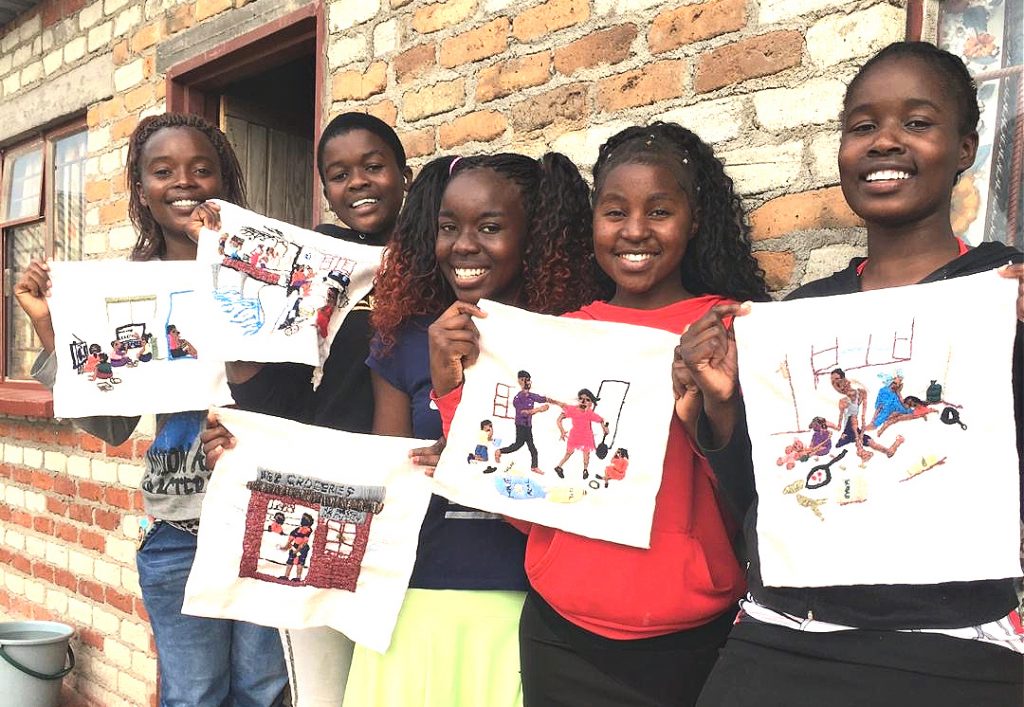 – WAP tested this approach in 2019-2020 and found that it works extremely well. The most important outcome by far is that none of the girl who have attended WAP’s clubs or participated in soap training have married early.
– WAP tested this approach in 2019-2020 and found that it works extremely well. The most important outcome by far is that none of the girl who have attended WAP’s clubs or participated in soap training have married early.- – The girls are earning money from soap – a very important outcome. Since training began in September 2019, the two clubs have produced over 5,000 bottles of their Clean Girl soap which have sold for around $6,000. Half has been reinvested in the program and the girls have shared the rest. This has made a significant contribution towards family incomes which can run as low as $1 a day.
- – Girls described child marriage through embroidery, which was then assembled into the Zimbabwe Child Marriage Quilt. WAP’s Executive Director Constance Mugari used the quilt to lobby diplomats and agencies at the ICPD25 conference in Nairobi – the first time that WAP participated at a UN summit. WAP’s advocacy has been strengthened as a result.
- – Families and local health clinics in Chitungwiza and Epworth have received WAP’s COVID-19 emergency kits.
Voices of the Girls
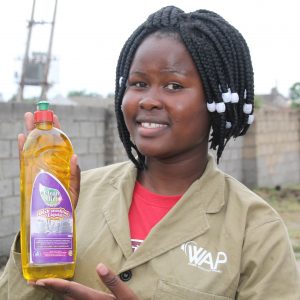 “This production has really helped us as girls. We are now managing to have our own pocket money, buying our needs like sanitation and helping our parents pay school fees since it has been hard for them.”
“This production has really helped us as girls. We are now managing to have our own pocket money, buying our needs like sanitation and helping our parents pay school fees since it has been hard for them.”
– Miriam, from the Chitungwiza girls’ club/soap team
“Since I’ve joined the soap-making club I’ve managed to pay my fees and buy myself things like sanitary wear and clothes. I have really benefitted a lot and I am grateful.”
– Lisa, from the Epworth girls’ club
“Since we started, we have seen a lot of changes in the community. Most of the girls were drop-outs. They are now going to school and are now able to buy their own clothes. So I thank The Women Advocacy Project.”
– Trish, the Epworth girls ambassador and soap team leader
About the Organization
Women Advocacy Project, a registered non-governmental, nonprofit organization, was created in 2012 by a group of women from different communities of Harare to focus more attention on the issues affecting women and girls. Their mission is to abolish child marriage, promote the rights of women and girls, and work towards women’s economic empowerment. WAP fulfills its mandate through advocacy campaigns, trainings, and workshops, and by facilitating economic empowerment for disadvantaged and marginalized women and girls in Zimbabwe.
Since its inception WAP has implemented the following programs, activities and services:
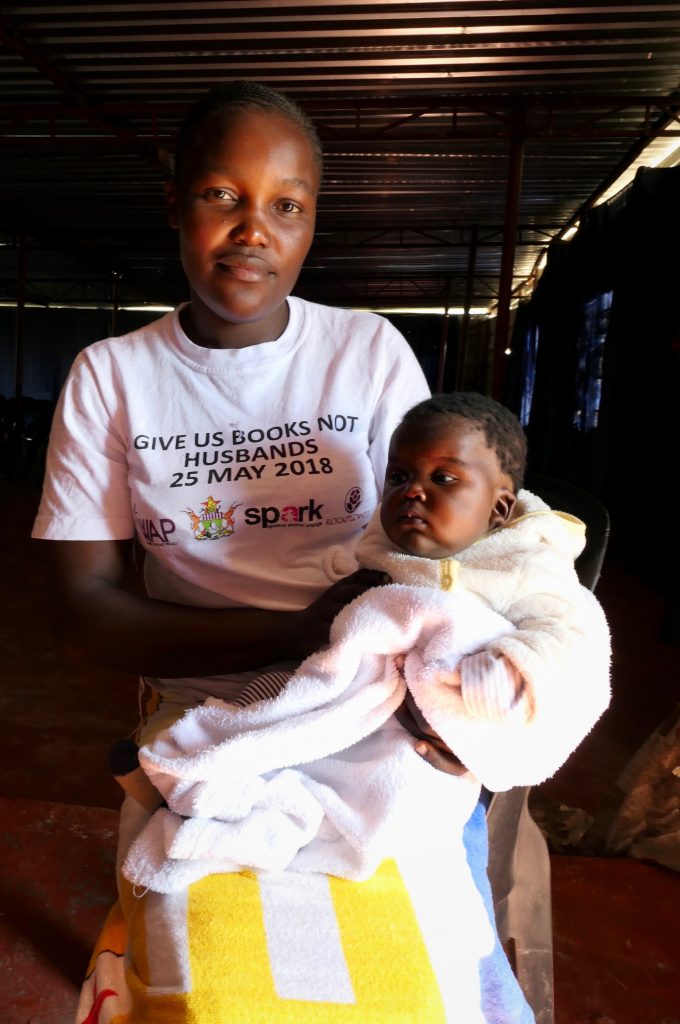 – Ambassadors Against Child Marriage: Under this innovative program, launched in 2018, WAP has trained several tough-minded girls to serve as Ambassadors Against Child Marriage. The ambassadors lead several “Give Us Books, Not Husbands” girls’ clubs in impoverished communities where child marriage is common.
– Ambassadors Against Child Marriage: Under this innovative program, launched in 2018, WAP has trained several tough-minded girls to serve as Ambassadors Against Child Marriage. The ambassadors lead several “Give Us Books, Not Husbands” girls’ clubs in impoverished communities where child marriage is common.- – Production of Clean Girl soap: In 2019, WAP launched a program in Epworth and Chitungwiza to produce and sell soap. In the first year, the clubs produced around 5,000 bottles and sold most of them.
- – “Give Us Books, Not Husbands” Child Marriage Abolition Campaigns: WAP implemented four successful campaigns that have benefited over 1,500 participants. Two were held in the Harare central business district. These campaigns have attracted support from the Ministries of Women Affairs, Community, Small and Medium Enterprises Development which work closely with WAP against child marriage in poor communities.
- – “Stand Up, Speak Out” trainings: Implemented by WAP in partnership with Girls Not Brides, the trainings were held for 44 young women and girls in 2018-19. Most of the girls have since become agents of change in their communities. Two awareness programs to end child marriage and focus on building a strong future have also been held by young women who previously attended WAP’s training program.
- – Women and Girls Entrepreneurship, Business Leadership and Management Training: Zimbabwean women have suffered from decades of unemployment and food shortages. WAP’s training enables women to create and manage self-sustaining business activities. Fifty women and girls were trained during two trainings in Harare and Marondera.
- – Basic Chemical manufacturing course: This course is a professional training program for those who have left school. It covers basic household and industrial products including detergents.
- – Storytelling through embroidery: The Zimbabwe Child Marriage Quilt – In 2019, several girls in Epworth and Chitungwiza described the problem of child marriage through embroidered panels that were then assembled into an advocacy quilt which was used by WAP to present at the ICPD25 international conference.
Covid-19 Emergency Plan: WAP is printing and handing out information from the WHO and other leading health institutions. WAP’s ambassadors have also distributed small parcels (soap, cooking oil, face masks, and Mealie-meal) to over 100 families. The soap that girls are distributing is “Clean Girl” soap that WAP produced before the pandemic. In every visit, girls remind families of the importance of social distancing, hand washing, and not touching eyes, mouth, and nose to mitigate the spread of the virus.
Where They Work
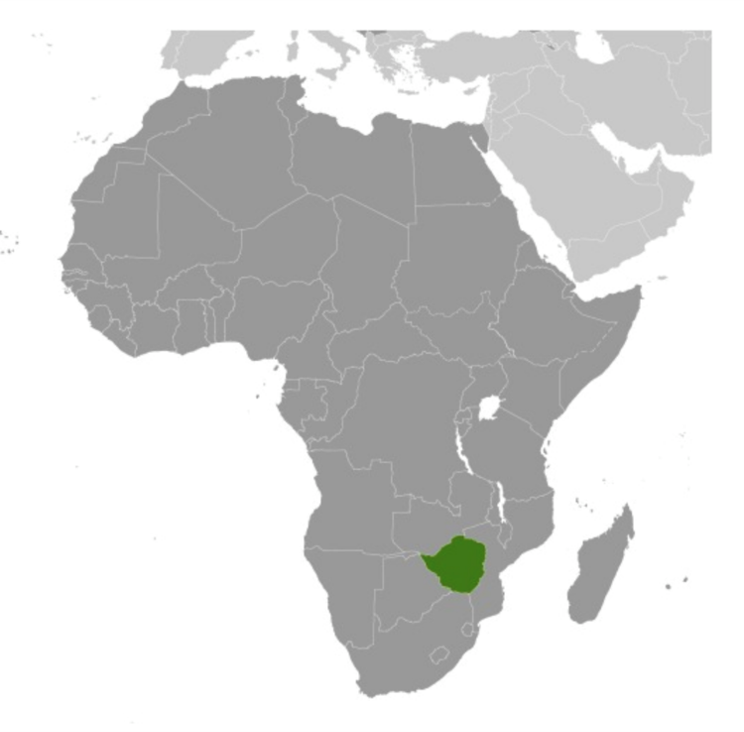
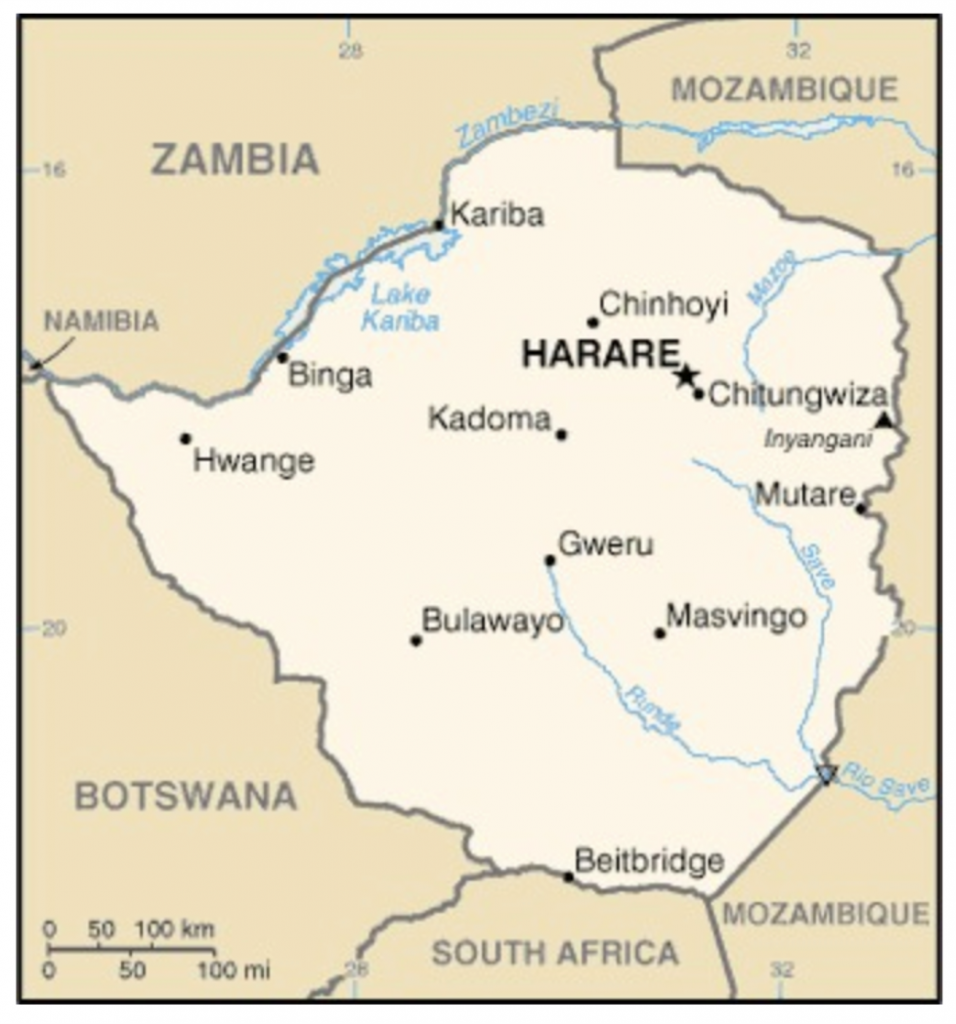
WAP is currently working in six impoverished communities of Harare in Zimbabwe: Epworth, Chitungwiza, Mbare, Hopely, and Waterfalls Retreat. Another club is being established in Eye Court.
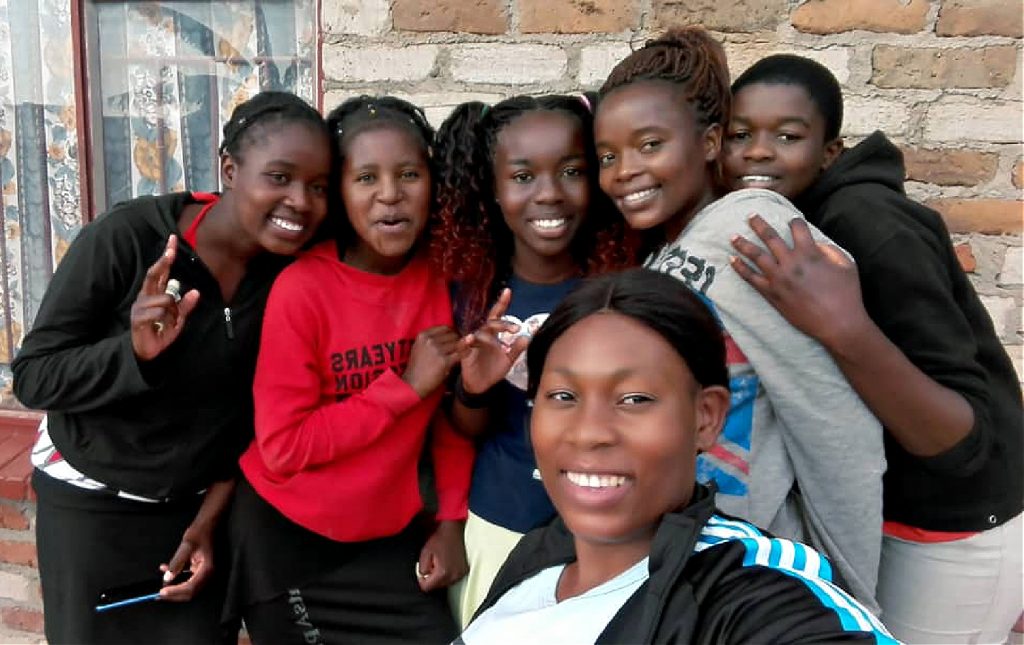 Zimbabwe is a poor, landlocked country in southern Africa, bordered by South Africa, Botswana, Zambia, and Mozambique. Around 80 percent of the country is at high elevation. These highlands are known for their natural environment and tourist destinations like Victoria Falls in the northwest. The climate is mostly tropical, with the southern areas hot and arid and the Eastern Highlands often cool and rainy. Zimbabwe experiences recurring droughts. Deforestation and poaching have reduced the population of wildlife, which has resulted in a decline in tourism. Deforestation has also eroded land and degraded fertile soil.
Zimbabwe is a poor, landlocked country in southern Africa, bordered by South Africa, Botswana, Zambia, and Mozambique. Around 80 percent of the country is at high elevation. These highlands are known for their natural environment and tourist destinations like Victoria Falls in the northwest. The climate is mostly tropical, with the southern areas hot and arid and the Eastern Highlands often cool and rainy. Zimbabwe experiences recurring droughts. Deforestation and poaching have reduced the population of wildlife, which has resulted in a decline in tourism. Deforestation has also eroded land and degraded fertile soil.
The total population of Zimbabwe is approximately 14.5 million. Zimbabwean women experience significant hardship, including sex and gender-based violence. According to the World Health Organization, the average life expectancy is 57 for men and 63 for women. Eighty-five percent are Christian. As is often the case in African countries, Zimbabweans often combine Christianity with traditional, cultural beliefs. Shona, Ndebele, and English are all official languages; English is used most commonly for business.
A coup took place in November 2017, ending Mugabe’s 30-year run as president. During those decades, there were numerous reports of human rights violations. Economic difficulties and politically repressive measures caused a quarter of the population to flee the country. Many of these refugees arrived in South Africa and Botswana.
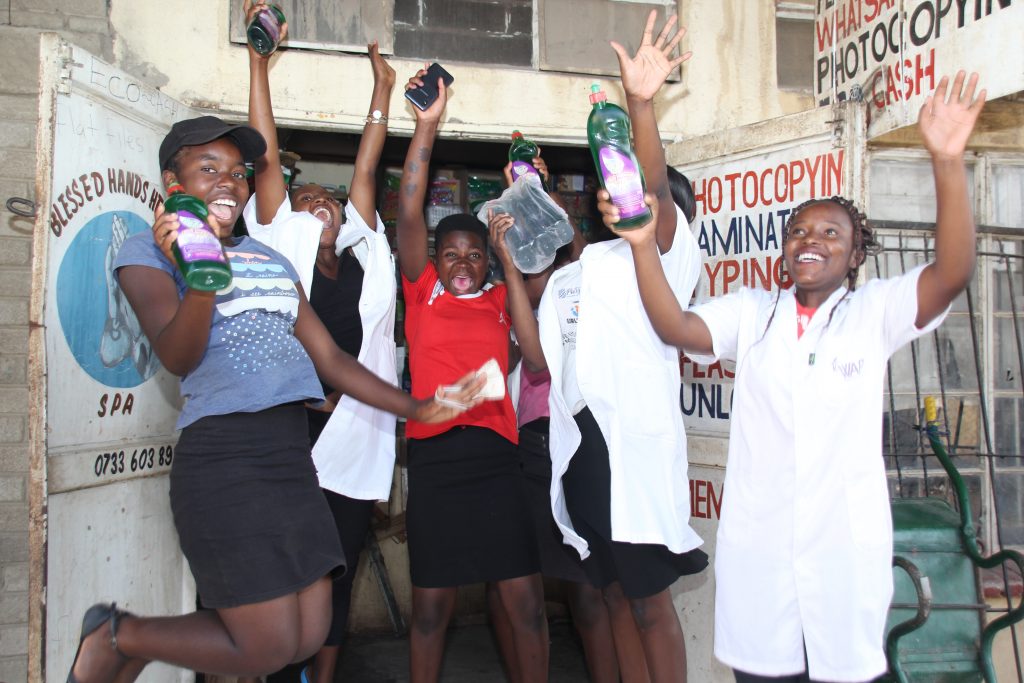 A Closer Look at how social enterprise creates a foundation for girls seeing themselves as entrepreneurs.
A Closer Look at how social enterprise creates a foundation for girls seeing themselves as entrepreneurs.
In many developing countries, women and girls often do not have the opportunity to improve their financial security without having something to sell. Employment without entrepreneurship may not be an option for these women, especially where economic conditions are so dire that the entire region is challenged.
In Africa, female entrepreneurship helps boost the economy and alleviate poverty. In fact, Africa is the only continent in which women comprise the majority of entrepreneurs. This is especially the case in Africa’s informal economy – that is, where economic activity takes place outside the regulated economy. This includes street vending or sewing clothes or other textiles from home. Although women face larger barriers than men, they are often known to make better use of small loans and to have a better track record of repayment.
Entrepreneurs are adept at solving problems, while social entrepreneurs solve problems that improve lives and reduce poverty. Social entrepreneurs plant the seeds that grow into blooming, viable enterprises. Once women and girls participate in these enterprises, see the benefits, and learn from these social entrepreneurs, they are more likely to become entrepreneurs themselves.
Source Materials
https://www.growmovement.org/why-african-entrepreneurship-is-leading-the-way/
https://www.growmovement.org/why-african-entrepreneurship-is-leading-the-way/
https://www.who.int/countries/zwe/
https://www.cia.gov/the-world-factbook/countries/zimbabwe/#introduction
Meldrum, Andrew (1 July 2007). “Refugees flood from Zimbabwe The Observer”. The Guardian. London, UK. Retrieved 6 April 2010.
